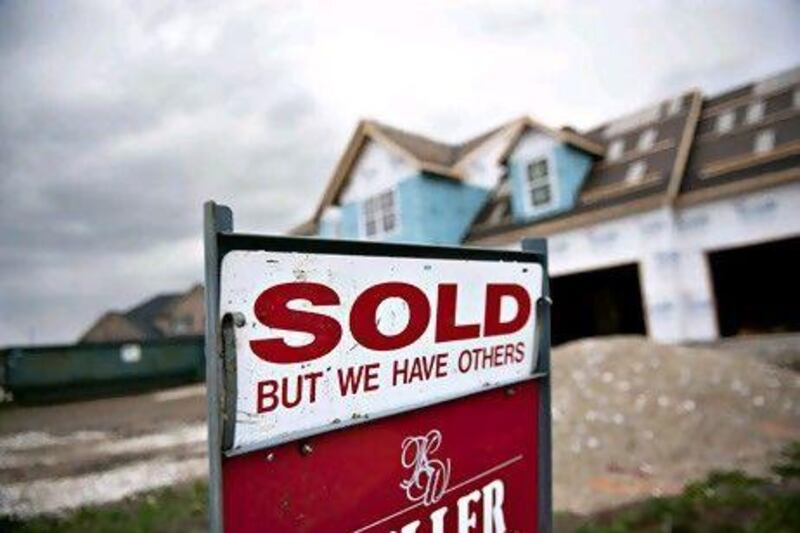As the razzmatazz fades on the US election and Barack Obama settles into the Oval Office for another four years, he will have to start grappling with an issue barely spoken of during campaigning: the looming fiscal crisis.
Failure to strike a deal on the issue will result in the economy plunging back into recession as a US$600 billion (Dh2.2 trillion) combination of tax rises and spending increases kick in at the end of the year.
"It doesn't make any sense to slam the brakes and plunge the US into recession," says Paul Sheard, the chief global economist at Standard & Poor's. "That's really the number one issue."
Mr Sheard and most other economists expect an agreement to be reached. But to avert the crisis, Mr Obama will have to negotiate with a Republican-controlled House of Representatives, signalling a rocky path to compromise. Mr Obama is expected to demand tax rises for the wealthy, a prospect likely to prove contentious with many Republicans.
On the whole, investors reacted positively to Mr Obama's re-election, with most markets moving higher yesterday before bourses in the United States opened. But a rerun of the political brinkmanship that gridlocked talks over raising the US debt ceiling and spooked markets in July and August last year is likely to trigger fresh volatility in equities. Raising the stakes still further is a recent warning from the US Treasury department that the US will probably hit its $16.4tn borrowing limit by the end of the year.
The Treasury has said it could allow "extraordinary measures" to give Congress and the White House more time to resolve a debt limit rise. But that is likely to only push back the risk of default until the beginning of next year.
"The debt ceiling and debt in general is a big issue," says Stephen King, the chief economist of HSBC. "I don't think either candidate properly debated that during the election."
Unless Mr Obama can spearhead policies to structurally reform the economy, the US may be in danger of stagnation, he warns.
"The US is heading in a situation that looks rather similar to Japan's experience of the last 20 years of low growth, continuously rising government debt, persistently low interest rates and policies designed to prevent the worst from happening rather than create the entrepreneurial dynamism we've seen in the US over previous decades."
He points out that average annual growth has already dipped from about 3 per cent in the 1980s and 1990s to 2.5 per cent between 2000 and 2007, before sliding to 1.5 per cent in the past decade. Still, signs of a stronger recovery from the financial crisis are emerging. Home sales rose 5.7 per cent in September, the fastest pace in two years, signalling a rebound in the industry whose troubles were at the heart of the financial crisis.
Jobs growth has also risen. Unemployment stood at 17.9 per cent last month after falling below 8 per cent in September for the first time in three-and-a-half years. Stock prices are about double their level of March 2009.
"The economy is in much better shape than many recent headlines have suggested," says Robert Baur, the managing director and chief global economist for Principal Global Investors.
The election result will help to spur even greater confidence among businesses, he points out.
"It provides businesses with more certainty," says Mr Baur. "Businesses will like that and we will likely see investment increase."
Mr Obama's re-election is likely to mean a continuation of Dodd-Frank, a reform designed to bolster oversight of the financial industry that has proven controversial with Wall Street.
His victory will also put to bed uncertainty about monetary policy. His Republican challenger Mitt Romney said he would replace the Federal Reserve chairman Ben Bernanke if elected.
Under Mr Bernanke, the Fed has maintained interest rates at near zero levels and pumped trillions of dollars into the economy in an effort to stimulate growth.
Mr Sheard said the Fed's policies had acted as positive tools for the economy.
"At some point, the US economy should get back to full employment and at that point it will be helpful for the Fed to withdraw the monetary policy and easing from the system."





